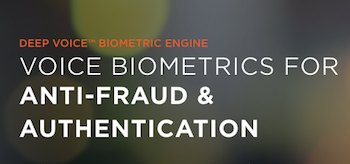 The contact center continues to grow as a soft target for mischievous and malicious fraudsters and hackers who are spoiled for choice when it comes to accessing personally identifiable information (PII) through database hacks and various forms of phishing, vishing, whaling, etc. Even the not-so-tech-savvy criminal is able to simply buy consumer data online for as little as a few cents. Fueled by the scale and frequency of large-scale data breaches across all commercial and even government sectors, 2017 will certainly be remembered as the year with the most high-profile data breaches. And even though a lot of protections are currently being implemented, the prognosis does not look great in the short-term.
The contact center continues to grow as a soft target for mischievous and malicious fraudsters and hackers who are spoiled for choice when it comes to accessing personally identifiable information (PII) through database hacks and various forms of phishing, vishing, whaling, etc. Even the not-so-tech-savvy criminal is able to simply buy consumer data online for as little as a few cents. Fueled by the scale and frequency of large-scale data breaches across all commercial and even government sectors, 2017 will certainly be remembered as the year with the most high-profile data breaches. And even though a lot of protections are currently being implemented, the prognosis does not look great in the short-term.
Pindrop, a global leader in call center fraud detection, has been screening hundreds of millions of calls annually with its patented Phoneprinting™ solution. Today, the company announced the addition of Deep Voice™ biometrics, and Toneprinting™ behavioral analytics; these methods will evaluate the device, behavior and voice of the caller from the moment the call is connected to an IVR or agent.
According to Pindrop, the new innovations deliver greatly improved performance, while also being able to identify virtualized activity such as ‘bots’ and synthesized audio:
- Deep Voice™: Uses deep neural networking (DNN) methods, which is an improvement on traditional algorithmic voice biometrics to deliver highly accurate, language independent authentication of very short utterances of speaker responses, therefore making it interoperable between IVR, virtual and live-agent calls.
- Toneprinting™: Utilizes the DTMF tone to assess user behavior such as length and cadence of keystrokes, together with the carrier and device characteristics
Opus has strongly supported the need for multiple layers including multi-modal and multi-factor in our various papers. At the end of 2017, we coined the term ‘Fourth Factor’ as a combination of methods that perform continuous authentication in parallel with the first three factors, which are the 1st Factor (something you have, i.e. possession/token), 2nd Factor (something you know, i.e. secret/password) and 3rd Factor (something you are, i.e. inherence/biometric).
Pindrop’s Passport™ adhere’s to two of the core elements of Opus Research’s Intelligent Authentication (#IAuth) philosophy, namely multi-layered security and continuous authentication. To be sure, we expect to see a great deal of rapid innovation in this area during the course of 2018.
Categories: Intelligent Authentication, Articles, Mobile + Location

 Opus Research Welcomes Ian Jacobs as VP and Lead Analyst
Opus Research Welcomes Ian Jacobs as VP and Lead Analyst  United Airlines, TXU Energy, and Memorial Hermann Among Opus Research’s 2024 Conversational AI Award Winners
United Airlines, TXU Energy, and Memorial Hermann Among Opus Research’s 2024 Conversational AI Award Winners  Zoho Fortifies a Formidable Solution Stack With AI
Zoho Fortifies a Formidable Solution Stack With AI  Opus Research “Vendors That Matter” Series: Marchex
Opus Research “Vendors That Matter” Series: Marchex